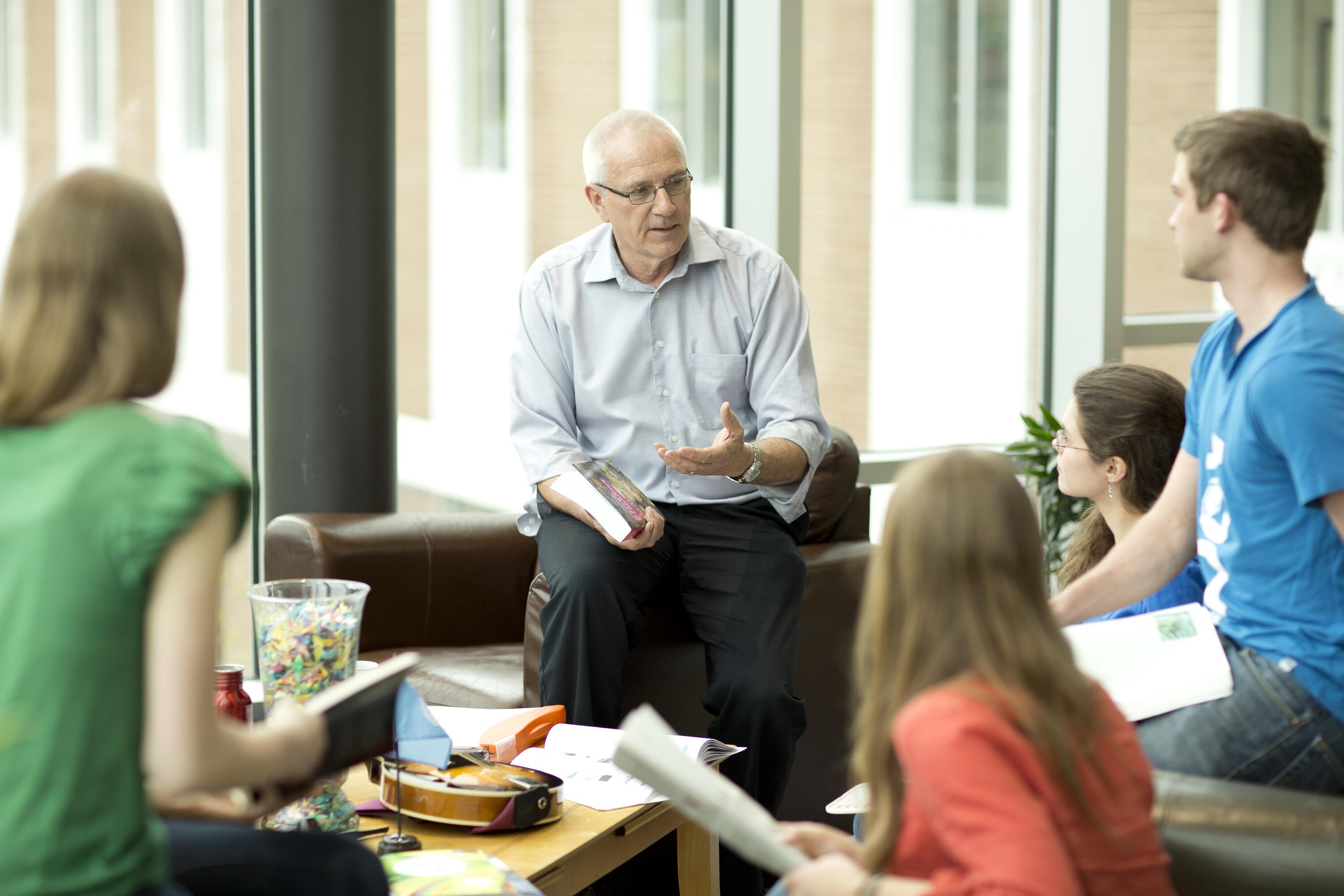By Michelle Jackett, Coordinator of the Kindred Credit Union Centre for Peace Advancement
Dear Lowell,
I remember 2010. Doe-eyed and hopeful, I walk up to you after class with four friends and ask to turn our final research assignment into a script for a one-act play. You say, “It’s never been done. Will it be any good?” and try to hold back your smile. Not only do you support this arts-based approach to your final assignment, but you recommend we develop it further in our final year of study. As Director of Peace and Conflict Studies (PACS), you approve the Directed Readings course in which we eventually performed a two-act play at the Conrad Centre for Performing Arts, raising thousands of dollars for Mennonite Coalition for Refugee Support while getting academic credit for our work.
I remember 2013. A colleague recommends me for teaching a highly esteemed PACS course with large enrollment numbers. It has been two years since you have seen me, as I have been pursuing graduate studies in Virginia. We meet, and you say something like, “We’ve never had a 24 year old teach a PACS class before. Will you be any good?” and I can tell that, despite reservations, you are smiling inside once again. We envision a co-teaching model and I partner with a local community leader to facilitate a seminar course that captures student imaginations about different ways to envision justice. Seven years later, I am teaching the course for the 10th time and early demand reports indicate that 73 students want to take the course this Fall.
I remember 2014. It’s my first week on the job as Coordinator of the Kindred Credit Union Centre for Peace Advancement. Instead of a slow entry into the job, I am preparing for the arrival of Ziauddin Yousafzai, Malala’s father, who would speak publically on campus that week. I am excited, but a little overwhelmed. I wonder who is behind this significant undertaking. I come to understand that one of the Centre for Peace Advancement’s first incubator start-ups is committed to peace education in conflict-affected areas, including Pakistan. The founder is a recent MPACS graduate and a friend of the Yousafzais. Where did he develop his idea and find the gumption to launch his initiative? In one of your classes, of course.
I remember 2020. It’s the week of your retirement, when your community of students, colleagues, family, and friends would be gathering in-person to celebrate your 23 years of service to the Peace and Conflict Studies department. While the pandemic keeps this from happening properly, I witness you acting with intention and leaning in. You connect with your colleagues to highlight the increased relevance of Grebel’s peacebuilding programs in light of current events. Rather than disengaging, you offer a prophetic word.
In my time as Coordinator at the Centre for Peace Advancement, I have come to expand my understanding of how change happens. Through bridging my knowledge of the peacebuilding field with that of the field of social innovation, I have consolidated some observations about what makes a successful changemaker. Firstly, a strong changemaker has a can-do, optimistic spirit that is balanced with a critical awareness of power. Secondly, they work collaboratively and seek intersections. Lastly, they seek systems change and high-level action while remaining grounded in relationship with the people they are serving.

Sincerely,
Michelle Jackett